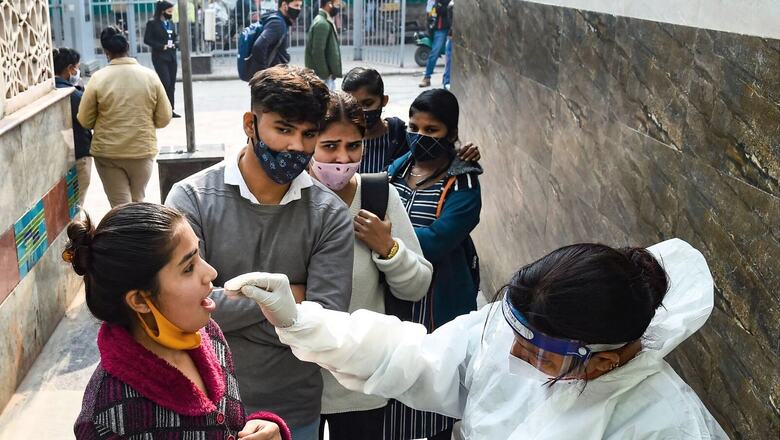
views
The active Covid-19 curve could begin to flatten within three months, a top epidemiologist at the Indian Council of Medical Research (ICMR) expects as India is witnessing an unprecedented rise in Covid-19 cases.
“The Covid curve could flatten in the next three months, provided these four things happen. Those states that fall behind in vaccination try to ramp it up, people avoid mass gatherings, people avoid non-essential travel and maintain mask usage with vaccination,” Dr Samiran Panda, head of the Epidemiology and Communicable Diseases, ICMR told India Today.
The flattening of the Covid-19 curve refers to the projected number of people who will contract Covid-19 over a period of time. The faster the infections rise, the quicker the local health care system gets overwhelmed.
As reported by WHO, a higher curve is created by a steep increase in the number of cases per day, followed by a quick decrease in the number of cases. Dr Samiran Panda further spoke to India Today about the efficacy of vaccines with highly mutated variant Omicron and said, there will be a rise in the number of infected individuals and that “vaccines will not stop the acquisition of the infection”. “These are disease-modifying vaccines. There will be a surge of infected individuals. Exposure to the Omicron could itself be a vaccine,” Dr Samiran Panda told India Today.
As more and more people are getting infected, the infections are getting less severe, he added. He further emphasised that the vaccines are able to reduce the severity of infections in the case of Omicron, however, we do not know what effect will it [Omicron] have on the elderly.
Amid a steady rise in the number of cases, and lesser hospitalisation, Dr Panda told India Today that 70% of the infections are asymptomatic and 30 per cent are mild, while some hospitalisations could be anxious, but we must not forget that India still has Delta variant.
Amid the Omicron threat, the ICMR is conducting research to find out Covaxin’s efficacy against this mutant variant. The results of this experiment are awaited. Reportedly, ICMR has already done four serosurveys to assess the spread of coronavirus infection in India. The fourth round of national serosurvey found that seropositivity or the presence of antibodies was highest in Madhya Pradesh at 75.9 per cent and lowest in Kerala at 44.4 per cent. As many as 67.6 per cent of the population has developed antibodies against Covid-19, the report said.
Read all the Latest India News here



















Comments
0 comment